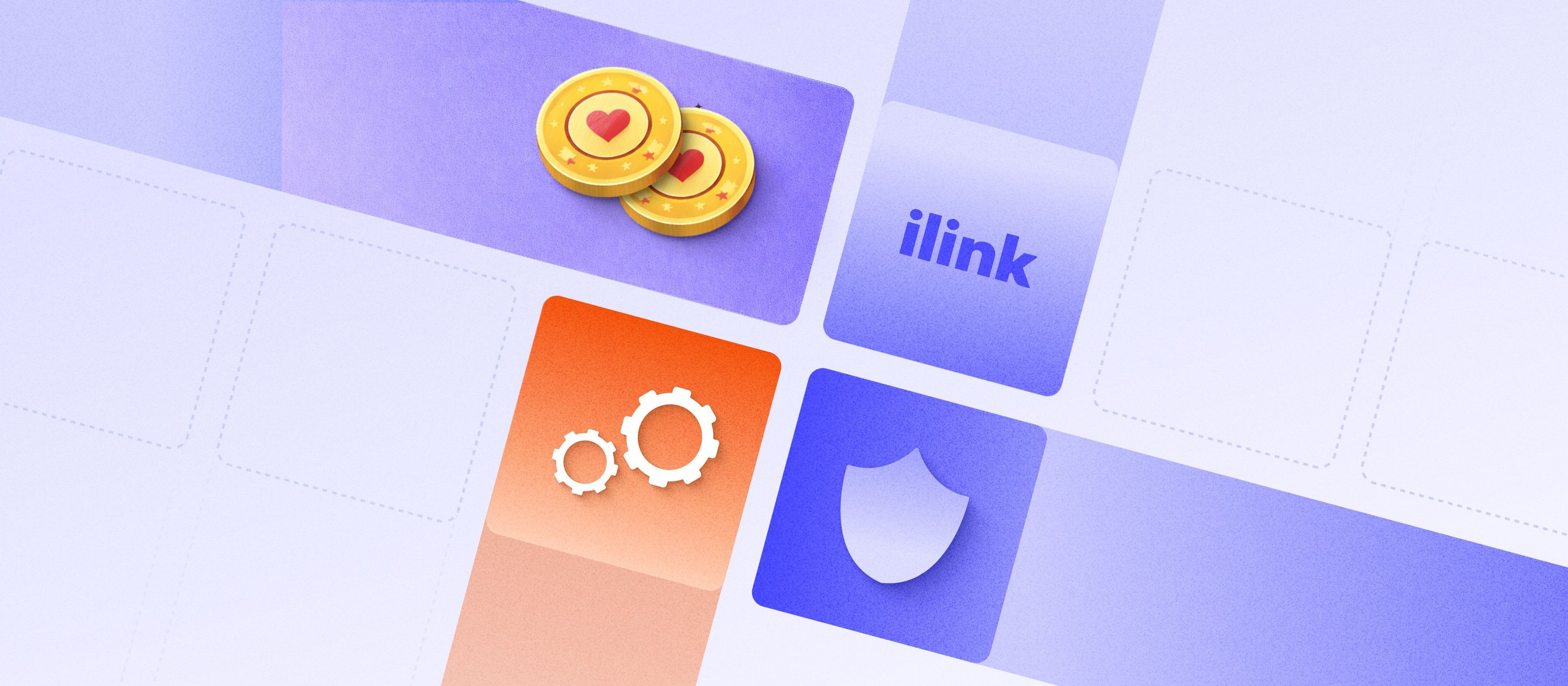Smart Contract Examples: How Businesses Use Blockchain in the Real World
Introduction
Businesses across industries are searching for ways to reduce costs, increase transparency, and automate routine processes. Traditional contracts rely on manual verification, paperwork, and third parties, which often create delays and risks.
Smart contracts are self-executing agreements stored on the blockchain. They automatically enforce rules once predefined conditions are met, making transactions faster, safer, and more efficient. In this article, we’ll explore smart contract examples that show how companies can use blockchain to solve real-world problems.
Common Business Problems Smart Contracts Solve
Many organizations face similar pain points when it comes to contracts and transactions:
- Inefficiency - too much paperwork, manual approvals, and long transaction times.
- High costs - fees for intermediaries such as lawyers, brokers, and banks.
- Fraud risks - forged documents, fake listings, and unreliable counterparties.
- Compliance challenges -– strict regulations and poor visibility across processes.
- Limited scalability - traditional contracts slow down companies that want to grow globally.
Smart contract solutions for business directly target these problems, offering speed, automation, and security.
Smart Contract Examples Across Industries
Real Estate
One of the best-known blockchain smart contract use cases is in real estate. Buying and selling property usually takes months and requires multiple intermediaries. With real estate smart contracts, ownership transfers happen automatically once payment is verified.
- Rental agreements. Landlords can automate rent collection, penalties for late payments, and contract renewals.
- Tokenization of property. Investors can buy fractional shares of real estate projects, opening opportunities for smaller investors.
This eliminates fraud, reduces legal costs, and speeds up deals, benefits that traditional real estate systems can’t match.
Finance and Banking
The financial sector faces slow settlement times and high transaction costs. Smart contracts in finance automate digital escrow, cross-border payments, and loan management.
- A digital escrow smart contract holds funds until both sides fulfill their obligations.
- Cross-border transfers become instant, with fees reduced compared to traditional banks.
- Loans can be programmed to release funds automatically and enforce repayment schedules.
These smart contract solutions for financial institutions improve trust and efficiency while reducing overhead.
Supply Chain and Logistics
Complex supply chains struggle with transparency and fraud. Smart contract examples in supply chain include:
- Payments are released automatically when goods reach their destination.
- Authenticity checks for products, ensuring they aren’t counterfeit.
- Compliance enforcement at each step of transportation.
For businesses, this reduces disputes, prevents losses, and ensures smooth delivery operations.
Insurance
Insurance companies face long claim processing times and fraud risks. Smart contracts in insurance can automate:
- Claim approvals based on verified data (e.g., flight delays or weather reports).
- Premium payments collected automatically through blockchain.
- Fraud detection by verifying claims against reliable data sources.
This speeds up service, lowers costs, and builds client trust.
Healthcare
Smart contracts in healthcare ensure data security and compliance with regulations.
- Patient consent agreements are stored on blockchain and executed automatically.
- Medical billing is automated, reducing administrative errors.
- Research projects can manage participant data with full transparency.
These use cases protect sensitive data while improving efficiency for healthcare providers.
Gaming and NFTs
The digital economy thrives on smart contract applications in gaming and NFTs.
- NFT ownership is verified through blockchain, preventing fraud.
- Play-to-earn models rely on smart contracts to distribute rewards automatically.
- Creators earn royalties every time their digital asset is resold.
This model creates new revenue streams and trust for both players and developers.
Government and Public Sector
Governments are also exploring smart contract solutions to improve transparency.
- E-voting systems record votes securely on blockchain.
- Land registries become tamper-proof and accessible.
- Public procurement is automated, reducing corruption risks.
These smart contract examples show how blockchain can restore trust in public services.
Energy and Utilities
The energy sector struggles with billing errors, inefficient distribution, and lack of transparency in renewable energy tracking. Smart contracts in energy provide automation and trust.
- Peer-to-peer energy trading between households with solar panels and buyers.
- Automated billing for electricity, gas, and water usage.
- Transparent issuance and trading of renewable energy certificates.
Intellectual Property and Media
Artists, musicians, and media companies often face delayed payments and piracy. Smart contract solutions for intellectual property ensure fair monetization.
- Automated royalty payments every time digital content is sold or streamed.
- Content licensing agreements executed instantly on blockchain.
- Immutable digital ownership records for creators to protect their work.
If your organization is ready to reduce costs, increase transparency, and scale globally with blockchain, contact ilink for expert smart contract development.
E-commerce
Online marketplaces face high fraud risks and disputes between buyers and sellers. Smart contracts in e-commerce create safer transactions.
- Escrow services that release funds only after goods are delivered.
- Warranty management coded into contracts for automatic enforcement.
- Subscription and recurring payment automation.
Travel and Hospitality
The travel industry suffers from booking errors, refund disputes, and complex package coordination. Smart contracts in travel bring automation and customer trust.
- Automatic hotel booking confirmations tied to payments.
- Instant flight insurance payouts for delays or cancellations.
- Coordinated tourism packages with hotels, flights, and local transport.
Employment and HR
Businesses waste time on payroll, contract disputes, and compliance reporting. Smart contracts in HR streamline workforce management.
- Freelance contracts with milestone-based automatic payments.
- Automated payroll distribution for employees.
- Compliance tracking embedded into employment agreements.
Education and Certification
Educational institutions and employers face growing issues with diploma fraud and manual verification. Smart contracts in education provide secure validation.
- Blockchain-based diplomas and certificates that are instantly verifiable.
- Automated course access for students through digital contracts.
- Research grants released in stages as milestones are completed.
The Role of AI in Smart Contract Development
Artificial intelligence enhances blockchain by adding intelligence to automation. When combined with smart contracts, AI can:
- Detect fraud in real time. AI models analyze claim patterns, transaction histories, or unusual activities and stop suspicious payouts before execution.
- Improve risk assessment. Machine learning evaluates user behavior, credit scores, or IoT data to help insurers, banks, or real estate platforms set better terms.
- Enable adaptive contracts. Policies or agreements can dynamically adjust based on AI-driven inputs, such as lowering premiums for safe driving or adjusting lending terms based on repayment history.
- Enhance oracle reliability. AI cross-checks multiple data feeds before passing information to a contract, reducing manipulation risks.
- Predict future events. AI forecasts claim volumes, market shifts, or supply chain delays, allowing businesses to adapt contracts proactively.
This fusion of AI and blockchain allows businesses to move from basic automation to intelligent automation, where agreements are not only executed but also optimized and safeguarded in real time. A professional smart contract development company ensures that businesses gain both the reliability of blockchain and the adaptability of AI, creating tailored solutions designed for their specific industry.
Why Businesses Need Custom Smart Contract Development
While the benefits are clear, custom smart contract development is essential for businesses. Off-the-shelf solutions cannot meet all regulatory, security, or integration requirements. Companies need:
- Integration with CRMs, payment gateways, and KYC/AML systems.
- Security audits to protect sensitive transactions.
- Scalability for global operations.
- Compliance with regional laws and industry standards.
A professional smart contract development company ensures that businesses get tailored solutions designed for their specific industry.
Why Partner with ilink for Smart Contract Development
Choosing the right development partner is key. ilink has more than 12 years of experience in blockchain, fintech, and enterprise software. Our expertise covers:
- Development of wallets, DeFi platforms, and tokenization solutions.
- Custom and white label smart contract solutions for real estate, finance, and other industries.
- A global team of 150+ specialists with projects across Europe, Asia, and Australia.
- Proven track record in delivering secure, scalable, and compliant blockchain systems.
Partnering with ilink means working with a smart contract development company that understands both technology and business needs.
From real estate to healthcare, smart contract examples prove that blockchain is more than theory, it’s a practical tool for solving business problems. Companies that adopt these solutions today will gain a significant competitive edge tomorrow.
Comments (0)
Latest Posts
Learn how AURI, the automated AI call center, transforms business communication. Natural dialogue, CRM integration, omnichannel support, rapid deployment, and enterprise-grade security in one intelligent solution.
Learn how to build an online casino that scales: games, payment options, compliance basics, risk controls, and operational automation for growth.
Do You Have Any Questions?
Leave your details - we will contact you to answer all your questions




